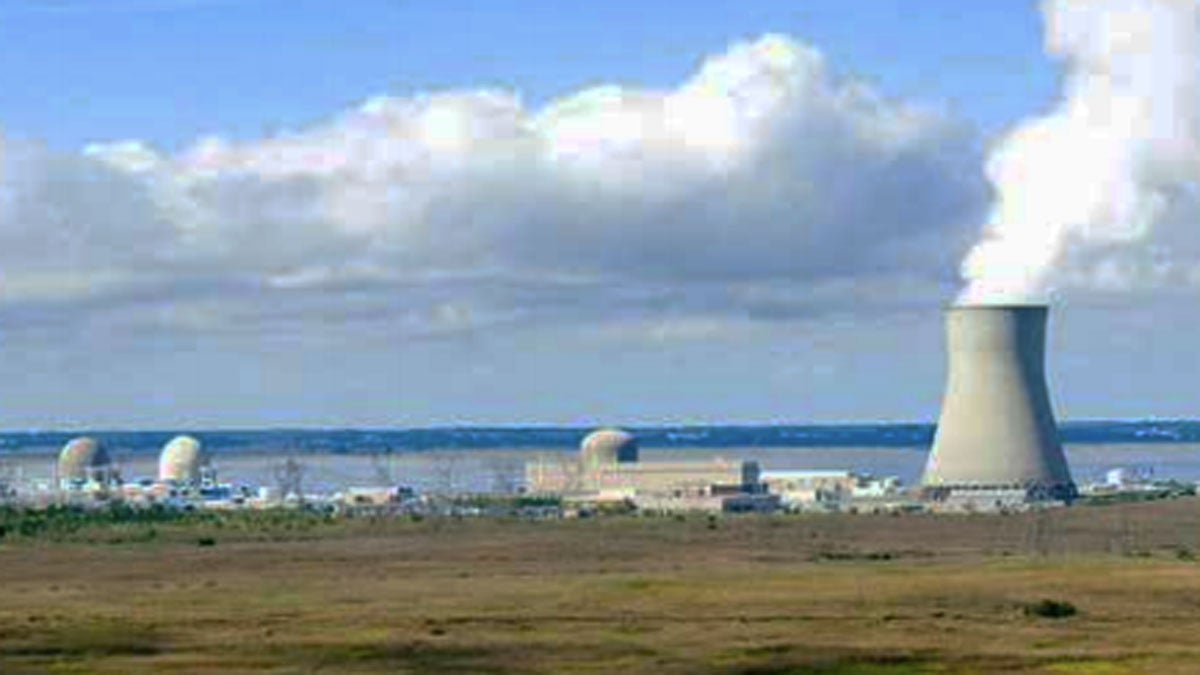Emails: Utility worked with Christie staff to shield data
PSEG spokesman Paul Rosengren said the company has an obligation to keep financial information private.

Salem and Hope Creek Nuclear Generating Stations (2017 Emergency Plan on the PSE&G website)
Lobbyists for New Jersey’s largest utility worked with former Gov. Chris Christie’s administration to craft a $300 million bail out for nuclear power, while adding language to shield the company’s financial information from the public, according to records obtained by The Associated Press.
The utility last month proposed adding more “stringent” financial confidentiality language to the legislation, according to correspondence between Public Service Enterprise Group officials and Christie’s administration obtained through a records request.
That language led to some of the harshest criticisms from the measure’s opponents, who say the company is trying to get away without showing financial need for the rescue. The bill is set for a vote Thursday in a state Senate committee.
PSEG spokesman Paul Rosengren said the company has an obligation to keep financial information private and added that public records laws take into account the occasional need to keep proprietary information confidential. He added that the state regulatory agency — a public body — would have all of the financial information and would “presumably act in the public interest.”
“We have a duty to protect confidential information on behalf of shareholders, themselves members of the public. The protection of trade secrets is not unusual and is a common consideration under law,” Rosengran said.
The issue arose in New Jersey when PSEG told lawmakers last month that its nuclear plants are heading toward financial insolvency within two years. The utility asked lawmakers and Christie for a rescue financed by ratepayers, which amounts to up to $41 a year for utility customers under the proposed legislation.
Messages left for the former Republican governor and Democratic Gov. Phil Murphy were not returned.
PSEG President and CEO Ralph Izzo has characterized the legislation as a no-brainer for residents. He said last month that if the nuclear plants close, natural gas plants would likely compensate, adding more carbon to the atmosphere, driving costs up and potentially leading to more than 6,000 job losses in the state.
Correspondence obtained by the AP shows that PSEG and the Christie administration exchanged more than a dozen emails, including drafts of the legislation, from early to mid-December.
PSEG executive Tamara Linde sent a marked up version of the draft legislation to senior deputy chief counsel Andrew McNally on Dec. 6, which she wrote “adds some more stringent language on confidentiality to ensure that the legislature, not the (Board of Public Utilities) is determining the confidential nature of the financial information.”
The administration responded with additional draft versions that left the confidentiality language intact and was included when the bill was introduced in mid-December.
The legislation requires the utility to certify to the state Board of Public Utilities that a plant will cease operations without a “material financial change.” The confidentiality language would allow only the board to review financial statements, while preventing their public release. The BPU’s five commissioners are appointed by the governor.
Democratic Senate President Steve Sweeney, who co-sponsors the bill, said he’s not concerned about the confidentiality language and that the BPU will have a chance to review the company’s finances to determine if the ratepayer assistance is warranted.
“The loss of jobs and increased cost of energy would hurt New Jersey,” Sweeney said.
Rate Counsel Stephanie Brand, a state official appointed by the governor to advocate for ratepayers, has been critical of the legislation. She said it’s not a surprise that PSEG helped craft the bill because the company’s “thumb has been on the scale” throughout the process.
She wants an independent review of the firm’s finances to determine whether the ratepayer bailout is necessary.
The legislation drew significant opposition, including from the AARP, environmental groups and industrial utility ratepayers, who stand to see their bills rise sharply under the proposal. They argue that PSE&G is opportunistically pursuing what amounts to a bailout without showing the financial need for the package.
Christie had said he favored keeping the state’s nuclear plants running as a way to ensure energy diversity and security.
Murphy has said he believes nuclear plants are a “vital link” to the state’s future and that he wants to work with the Legislature on a measure that has nuclear and clean-energy components. He stopped short of supporting the legislation.
New Jersey gets about 40 percent of its electricity production from nuclear, which is a zero-carbon-emitting power and a relatively cheap source of energy compared to fossil fuels.
Follow Catalini at https://twitter.com/mikecatalini
WHYY is your source for fact-based, in-depth journalism and information. As a nonprofit organization, we rely on financial support from readers like you. Please give today.




